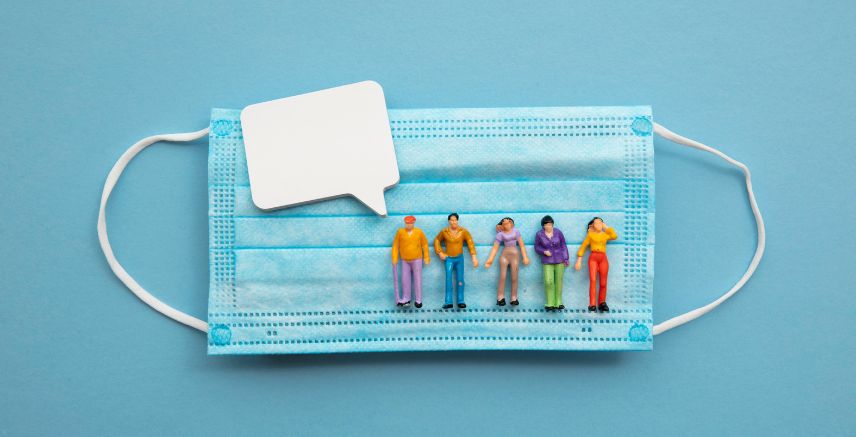How to Recognize Symptoms
Primary immunodeficiencies (PI) represent a group of more than 400 rare chronic disorders in which part of the body's immune system is missing or functions improperly. Unlike secondary immunodeficiencies that are caused by external factors like medications or infections, primary immunodeficiencies are typically present from birth and are caused by genetic defects. This article explores the key warning signs of primary immunodeficiency disorder.
Recurrent and Persistent Infections
One of the most common and telling signs of primary immunodeficiency is experiencing infections that occur repeatedly or are unusually difficult to clear. These infections may affect various parts of the body and persist despite appropriate treatment.
Respiratory Infections
Individuals with PI often suffer from frequent respiratory infections including pneumonia, bronchitis and sinusitis. These infections may occur multiple times a year and often require antibiotic treatment. A pattern of requiring multiple courses of antibiotics to clear an infection can be particularly indicative of an underlying immune deficiency.
Ear Infections
Recurrent ear infections, especially in children, may signal a primary immunodeficiency. When a child experiences multiple ear infections (more than four in one year), this warrants further investigation, particularly if the infections do not respond well to standard treatments.
Gastrointestinal Issues
Chronic diarrhea, malabsorption and persistent gastrointestinal infections can be signs of certain types of primary immunodeficiency. These symptoms may be accompanied by failure to gain weight or growth delays in children, as the body struggles to absorb necessary nutrients due to the ongoing inflammation and infection.
Unusual or Severe Infections
The presence of uncommon or particularly severe infections can be a red flag for primary immunodeficiency disorders.
Infections with Unusual Pathogens
Infections caused by organisms that typically don't cause disease in people with normal immune function may suggest an immunodeficiency. Examples include Pneumocystis pneumonia, certain fungal infections or recurrent infections with specific types of bacteria.
Deep-Seated Infections
Infections that penetrate deep into the body, such as abscesses in organs, sepsis (bloodstream infections) or meningitis, especially if they occur repeatedly, should raise suspicion for an underlying immune defect.
Poor Response to Treatment
When infections don't respond to standard treatments or require unusually long courses of antibiotics, this may indicate that the immune system is unable to properly assist in clearing the infection.
Autoimmune Disorders
Many people with primary immunodeficiency also develop autoimmune disorders, where the immune system attacks the body's own tissues. Common autoimmune manifestations include:
- Immune thrombocytopenia (low platelets).
- Autoimmune hemolytic anemia.
- Inflammatory bowel disease.
- Rheumatoid arthritis.
- Thyroid disorders.
Physical Findings and Developmental Issues
Some primary immunodeficiencies are associated with distinctive physical characteristics or developmental problems.
Failure to Thrive
Children with PI may exhibit poor growth patterns, failure to gain weight appropriately or developmental delays. This occurs because the body expends considerable energy fighting infections rather than supporting normal growth and development.
Delayed Wound Healing
Wounds that take an unusually long time to heal may indicate problems with the immune system's ability to repair tissue damage and protect against infection during the healing process.
Family History
Many primary immunodeficiencies have a genetic basis, so a family history of similar symptoms or diagnosed immunodeficiency disorders can be an important clue. Some disorders follow clear inheritance patterns, while others may result from new genetic mutations.
Laboratory Abnormalities
Routine blood tests may reveal abnormalities that suggest an underlying immunodeficiency.
Low Blood Cell Counts
Unexplained low white blood cell counts, particularly of neutrophils or lymphocytes, can be a sign of certain primary immunodeficiencies. Some disorders also affect red blood cells or platelets.
Abnormal Antibody Levels
Persistently low levels of one or more antibody classes (immunoglobulins) or abnormal responses to vaccines may indicate a humoral immune deficiency.
Treatment Options for Primary Immunodeficiency
Treatment for PI disorders varies depending on the specific diagnosis but generally aims to prevent and manage infections while addressing the underlying immune defect when possible.
Immunoglobulin Replacement Therapy
For antibody deficiencies, regular infusions of immunoglobulin (antibodies purified from donated blood) can provide passive immunity. This treatment can be administered intravenously (IVIG) or subcutaneously (SCIG) and helps prevent infections by replacing the missing antibodies.
Prophylactic Antibiotics
Long-term, preventive antibiotics may be prescribed to reduce the frequency and severity of bacterial infections in certain types of PI.
Immune Modulators and Targeted Therapies
Newer treatments target specific molecular defects or pathways involved in some primary immunodeficiencies. These may include cytokine therapies, enzyme replacement or small molecule drugs that can correct specific immune functions.
Hematopoietic Stem Cell Transplantation
For severe combined immunodeficiency (SCID) and other profound immunodeficiencies, hematopoietic stem cell transplantation (bone marrow transplant) can be curative, replacing the defective immune system with a healthy one from a donor.
Gene Therapy
For some conditions, experimental gene therapy approaches aim to correct the underlying genetic defect by introducing functional copies of the affected gene into the patient's own cells.
The information on this website is for general educational purposes only and is not a substitute for professional medical advice. Always consult your doctor or qualified healthcare provider before making changes to your health, diet or treatment plan.

